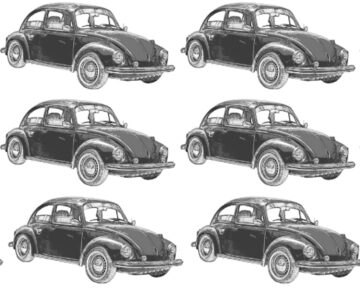Witold Rybczynski at Literary Hub:
 The car I bought in Hamburg had distinctive oval German export license plates, and an international registration sticker marked with a D, for Deutschland. As I drove through Holland on my way to Paris, more than once when asking for directions I received dirty looks, especially from older persons for whom the wartime German occupation was a living memory.
The car I bought in Hamburg had distinctive oval German export license plates, and an international registration sticker marked with a D, for Deutschland. As I drove through Holland on my way to Paris, more than once when asking for directions I received dirty looks, especially from older persons for whom the wartime German occupation was a living memory.
And, after all, my car’s godfather was Adolf Hitler himself. Opening the 1933 Berlin Motor Show as the newly appointed reich chancellor, he had announced a national policy to motorize Germany, which despite having invented the automobile a half century earlier, lagged other European countries in car ownership. Hitler called on the auto industry to produce an affordable people’s car, a volkswagen.
The automotive engineer who would realize Hitler’s vision was not a German native. Ferdinand Porsche (1875–1951) was born in the small Bohemian market town of Maffersdorf in the Austro-Hungarian Empire; after the First World War, he would become a citizen of the newly created Czechoslovak Republic.
More here.
Enjoying the content on 3QD? Help keep us going by donating now.
